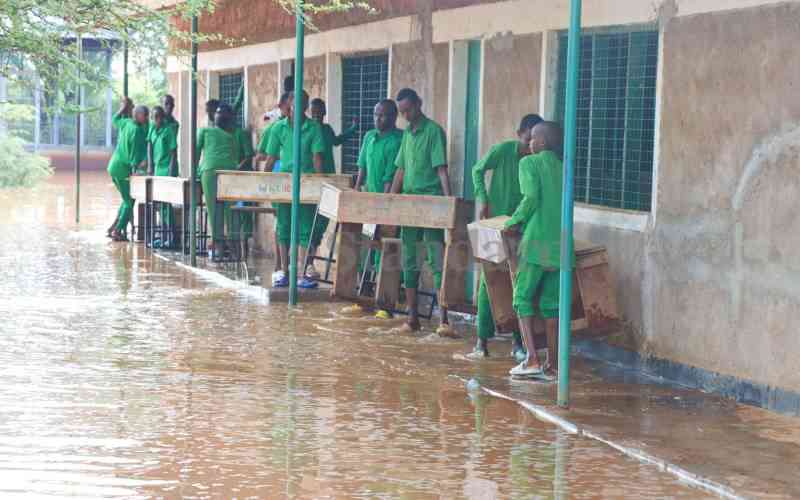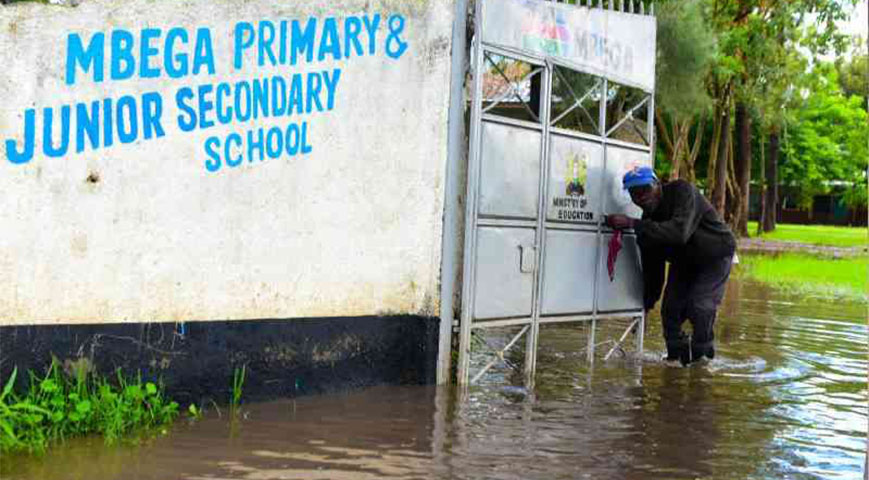Over half a million students have not returned to school weeks after learning institutions reopened for Term Two.
According to the Save the Children charitable organization, about 497,783 students have stayed at home or in temporary shelters, unable to resume their studies.

The Ministry of Education (MoE), Save the Children, and UNICEF conducted collaborative assessments, which revealed that floods destroyed 3,781 classrooms and 18,615 toilets.
Did you read this?
Waterborne infections have also been on the rise among youngsters, with the Ministry of Health reporting that 49% of cases involve children aged one to 10. This is due to fecal waste entering schools, playgrounds, and houses.
The heavy downpours are reported to have greatly affected the children’s mental health, as some have had trouble sleeping well.
The frequent downpours are said to have had a significant impact on the children's mental health, with some having difficulty sleeping comfortably.

Some flood-affected families who are still living in temporary shelters awaiting relocation are concerned about protection issues such as sexual gender-based violence (SGBV), the loss of walking aids and wheelchairs for disabled children, a lack of clean water for cooking and drinking, and psychosocial stress and trauma.
The charity organization urges the government to support relevant line ministries in conducting rapid assessments to inform recovery efforts, repairing dilapidated classrooms, dormitories, and toilets, providing alternative learning spaces, and promoting health and hygiene sessions in schools and communities.









